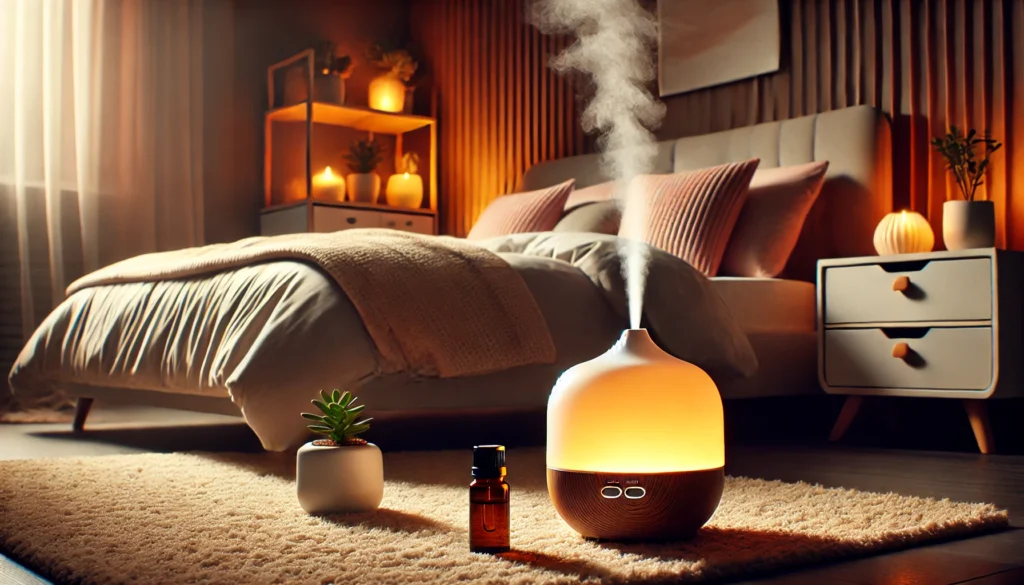Introduction: The Essential Role of Sleep in Cognitive and Neural Health
Sleep is a fundamental biological function, essential for maintaining memory retention, cognitive performance, and overall well-being. The modern world, however, has created a landscape in which millions suffer from chronic sleep deprivation and insomnia. Many individuals seek the best sleep aid for insomnia to enhance sleep quality, increase deep sleep, and support neural pathway strengthening. While pharmaceutical sleep aids may provide temporary relief, natural cures for insomnia and sleep remedies often present more sustainable, holistic solutions. Understanding which supplements, herbs, and techniques serve as the most effective sleep support strategies can help individuals regain restorative sleep without the risks associated with dependency or side effects.
You may also like: How to Increase Brain Cells Naturally: Strengthening Neural Pathways for Optimal Memory & Recall
The importance of deep sleep extends far beyond mere rest. During this critical stage, the brain consolidates memories, detoxifies itself, and strengthens neural connections vital for learning and recall. Without adequate sleep, cognitive function declines, and individuals experience difficulties in focus, problem-solving, and emotional regulation. The pursuit of the best sleep supplement should therefore not only focus on falling asleep faster but also on improving sleep architecture to enhance overall cognitive function. Exploring melatonin alternatives, herbal sleep remedies, and top-rated sleep supplements provides a foundation for achieving natural, sustainable sleep improvement.
The Science of Insomnia: Understanding the Root Causes
To identify the best sleep aid for adults, it is crucial first to understand the underlying causes of insomnia and sleep disturbances. Stress, anxiety, and an overactive nervous system often contribute to difficulty falling and staying asleep. The body’s natural circadian rhythm, which regulates sleep-wake cycles, can also become disrupted due to excessive exposure to artificial light, shift work, and irregular sleep schedules. Chronic insomnia may also stem from nutritional deficiencies, hormonal imbalances, or underlying medical conditions that interfere with the body’s ability to initiate sleep naturally.
What naturally helps with insomnia often involves addressing these root causes rather than merely treating the symptoms. Supplements to increase deep sleep, for example, work by promoting relaxation, reducing stress hormones, and enhancing neurotransmitter activity to facilitate restful sleep. Identifying effective insomnia treatment natural remedy options requires a multi-faceted approach, integrating herbal support, dietary adjustments, and behavioral modifications to restore healthy sleep patterns.
Herbal Sleep Remedies: Nature’s Answer to Restorative Sleep
Throughout history, various cultures have turned to herbal sleep solutions to combat restlessness and improve sleep quality. Herbs that make you sleep instantly often work by calming the nervous system, reducing stress, and promoting deep relaxation. Among the most effective herbal sleep aids, valerian root stands out for its ability to enhance GABA activity, a neurotransmitter responsible for reducing brain excitability. Studies have shown that valerian root can reduce the time required to fall asleep while improving overall sleep efficiency.
Chamomile, another widely recognized sleep remedy, contains apigenin, a flavonoid that binds to GABA receptors, exerting sedative-like effects. Lavender, whether used in essential oil form or as an herbal tea, has been found to lower heart rate and promote deep relaxation before bedtime. These natural remedies to help sleep offer a gentle, non-habit-forming alternative to synthetic sedatives. By incorporating these herbs into a holistic sleep aid regimen, individuals can harness the power of nature to support their body’s natural sleep mechanisms.

Supplements to Help Sleep: Nutrients That Promote Deep and Restorative Rest
Many people seeking products to help sleep turn to dietary supplements that target the biochemical processes underlying sleep regulation. Magnesium is one of the most effective sleep-supporting nutrients, as it plays a crucial role in calming the nervous system and regulating melatonin production. Studies indicate that magnesium supplementation can reduce sleep latency and increase time spent in restorative slow-wave sleep.
In addition to magnesium, L-theanine, an amino acid found in green tea, promotes relaxation by increasing alpha brain wave activity and reducing stress-induced cortisol levels. Glycine, another amino acid, has been shown to lower body temperature and improve sleep onset, making it one of the top-rated sleep supplements for individuals struggling with disrupted sleep cycles. A combination of these natural sleep-enhancing compounds provides a safe and effective alternative to pharmaceutical sleep aids, minimizing the risk of dependency while optimizing sleep architecture.
Alternatives to Melatonin for Sleep: Non-Hormonal Sleep Aids
Melatonin is often regarded as the go-to supplement for sleep disorders, but not everyone responds well to its use. Some individuals experience grogginess, headaches, or vivid dreams after melatonin supplementation. Fortunately, there are several melatonin alternatives that work by supporting the body’s natural sleep cycle without directly influencing hormone levels. Adaptogenic herbs such as ashwagandha help regulate cortisol levels, reducing stress-induced sleep disturbances.
5-HTP (5-Hydroxytryptophan), a precursor to serotonin, supports mood stabilization and melatonin synthesis, promoting a sense of relaxation conducive to sleep. Taurine, an amino acid, modulates GABA receptors and reduces excitatory neurotransmitter activity, making it a powerful holistic sleep aid. For those seeking a night sleep aid without hormonal effects, these compounds offer a promising alternative that aligns with the body’s natural rhythms.
Lifestyle and Behavioral Strategies to Enhance Sleep Quality
While supplements for deep sleep and herbal sleep remedies provide significant support, lifestyle adjustments play a crucial role in sustaining long-term sleep improvements. One of the most effective strategies for optimizing sleep involves establishing a consistent bedtime routine. Exposure to bright screens before bedtime can suppress melatonin production, making it essential to limit screen time at least one hour before sleep.
Practicing mindfulness meditation, deep breathing exercises, or progressive muscle relaxation can also enhance sleep onset by reducing physiological arousal. Individuals suffering from chronic sleep disturbances may benefit from cognitive-behavioral therapy for insomnia (CBT-I), which targets maladaptive thought patterns and behaviors contributing to poor sleep. Combining sleep remedies with structured behavioral changes maximizes the effectiveness of any natural treatment for sleeplessness.

Frequently Asked Questions (FAQ) on Sleep Aids and Natural Remedies
1. What are the most effective natural cures for insomnia?
Natural cures for insomnia include a combination of lifestyle changes, herbal sleep remedies, and targeted supplements. Establishing a consistent sleep schedule and reducing exposure to artificial light before bedtime are essential behavioral strategies. Herbal sleep aids such as valerian root and passionflower work to calm the nervous system, making them effective alternatives to melatonin for sleep. Additionally, magnesium and L-theanine are supplements to help sleep by promoting relaxation and reducing stress-induced wakefulness. Implementing these methods can lead to long-term sleep support without reliance on pharmaceutical interventions.
2. How do holistic sleep aids compare to pharmaceutical sleep aids?
A holistic sleep aid focuses on addressing the root causes of insomnia, whereas pharmaceutical options often provide only short-term symptom relief. The best sleep aid for adults should support the body’s natural sleep cycle rather than forcing sedation. Supplements to increase deep sleep, such as glycine and ashwagandha, work with the body’s natural rhythms to promote restfulness. In contrast, over-the-counter sleep aids may lead to dependency and grogginess upon waking. Many individuals find that incorporating natural remedies to help sleep leads to improved sleep quality over time without the drawbacks of pharmaceutical sleep aids.
3. What are the top-rated sleep supplements for improving sleep quality?
The top-rated sleep supplements often include a blend of herbal and nutritional components designed to enhance relaxation and deep sleep. Magnesium, known for its muscle-relaxing properties, is one of the best sleep supplements for alleviating nighttime restlessness. Herbs that make you sleep instantly, such as valerian root and chamomile, are frequently used in night-time sleep aids. Adaptogens like Rhodiola and ashwagandha regulate stress hormones, reducing anxiety-related sleep disturbances. Selecting a supplement that aligns with individual sleep needs can provide targeted sleep support and improved overall restfulness.
4. What are the best alternatives to melatonin for sleep?
Many individuals seek alternatives to melatonin for sleep due to its potential side effects, such as vivid dreams or morning grogginess. Herbal sleep aids, such as passionflower and lemon balm, provide similar sedative effects without disrupting the body’s natural hormone balance. Amino acids like tryptophan and glycine act as natural treatments for sleeplessness by promoting serotonin production and lowering core body temperature. Additionally, GABA-enhancing compounds like L-theanine work effectively as a night-time sleep aid. These alternatives allow individuals to experience deep, restorative sleep without hormonal interference.
5. How do supplements for deep sleep affect cognitive function?
Supplements for deep sleep not only enhance rest but also improve cognitive function by strengthening neural pathways. Sleep aids that work to increase deep sleep, such as GABA and 5-HTP, facilitate memory consolidation and mental clarity. The best sleep aid for insomnia should support neurotransmitter balance, preventing sleep deprivation-related cognitive decline. Long-term use of sleep supplements that enhance slow-wave sleep may contribute to better learning and problem-solving abilities. Ensuring high-quality sleep through proper supplementation helps maintain brain health and emotional resilience.
6. How does insomnia affect financial decision-making and long-term planning?
Sleep deprivation has been linked to impulsive decision-making and poor financial judgment. Individuals experiencing chronic insomnia natural sleep disruptions often struggle with delayed gratification and risk assessment. Lack of sleep can impair cognitive flexibility, making it more challenging to evaluate financial investments accurately. Over time, these deficits may lead to missed opportunities for wealth accumulation and increased susceptibility to financial stress. Addressing insomnia through sleep remedies and a structured nighttime routine can improve focus and rational decision-making in professional and financial settings.
7. What role do herbal sleep aids play in managing long-term sleep disturbances?
Herbal sleep aids offer a sustainable solution for individuals struggling with chronic sleep disturbances. The best sleep aid for adults seeking a long-term approach to insomnia natural management includes botanicals such as valerian root, passionflower, and skullcap. These herbs promote relaxation and reduce nighttime cortisol levels, preventing stress-related awakenings. Unlike synthetic sleep aids, herbal options do not interfere with normal sleep architecture, allowing for natural sleep cycle restoration. Consistently incorporating these remedies into a holistic sleep aid regimen fosters healthier sleep patterns without dependency.
8. How do lifestyle and diet influence sleep quality?
Diet and lifestyle play significant roles in determining sleep quality and duration. Products to help sleep often work best when combined with a diet rich in sleep-supportive nutrients, such as magnesium and tryptophan. Reducing caffeine intake in the evening and establishing a bedtime routine help signal the body to prepare for rest. The 26 home remedies for insomnia suggest incorporating stress-reducing activities, such as meditation and aromatherapy, alongside dietary adjustments. Individuals who prioritize sleep hygiene and balanced nutrition experience more profound, uninterrupted sleep cycles.
9. What is the relationship between deep sleep and immune function?
Deep sleep is essential for immune system regulation and overall well-being. Supplements to increase deep sleep, such as zinc and melatonin alternatives like reishi mushroom, enhance immune resilience by reducing inflammation and oxidative stress. Sleep aids that work by promoting longer REM and slow-wave sleep cycles contribute to cellular repair and hormonal balance. Individuals experiencing chronic sleep deprivation may find themselves more susceptible to infections and chronic illnesses. Prioritizing sleep through natural remedies to help sleep supports both neurological and immune system health.
10. How can individuals determine the best sleep aid for their specific needs?
Determining the best sleep aid for insomnia requires an understanding of individual sleep disturbances and underlying causes. Those experiencing stress-related sleep disruptions may benefit from adaptogens such as ashwagandha, while individuals struggling with poor sleep architecture may find glycine or magnesium more effective. Consulting with a healthcare provider can help identify the most suitable natural treatment for sleeplessness based on personal health history. Experimenting with different top-rated sleep supplements and tracking improvements in sleep patterns can refine an individual’s sleep aid regimen. A tailored approach ensures the most effective and sustainable results for long-term sleep support.

Conclusion: Finding the Right Sleep Aid for Long-Term Cognitive Health
Restorative sleep is essential for maintaining memory, cognitive function, and overall well-being. Those searching for the best sleep aid for insomnia should explore a variety of holistic approaches, including herbal sleep remedies, targeted nutritional supplementation, and lifestyle modifications. Whether seeking melatonin alternatives, supplements to increase deep sleep, or herbs that make you sleep instantly, the key lies in addressing the underlying factors disrupting sleep.
By incorporating sleep aids that work in harmony with the body’s natural sleep-wake cycle, individuals can experience profound improvements in both sleep quality and cognitive performance. The pursuit of a holistic sleep aid should not only focus on resolving insomnia but also on supporting neural pathway strengthening, ensuring long-term mental clarity and resilience. With the right combination of supplements, behavioral strategies, and dietary interventions, achieving deep and rejuvenating sleep becomes an attainable goal for anyone struggling with sleep disturbances.
Further Reading:
10 Natural Sleep Aids for Better Sleep
The 8 Best Natural Sleep Aids, According to Dietitians
Natural Sleep Aids: Which Are the Most Effective?
Important Note: The information contained in this article is for general informational purposes only, and should not be construed as health or medical advice, nor is it intended to diagnose, prevent, treat, or cure any disease or health condition. Before embarking on any diet, fitness regimen, or program of nutritional supplementation, it is advisable to consult your healthcare professional in order to determine its safety and probable efficacy in terms of your individual state of health.
Regarding Nutritional Supplements Or Other Non-Prescription Health Products: If any nutritional supplements or other non-prescription health products are mentioned in the foregoing article, any claims or statements made about them have not been evaluated by the U.S. Food and Drug Administration, and such nutritional supplements or other health products are not intended to diagnose, treat, cure, or prevent any disease.


